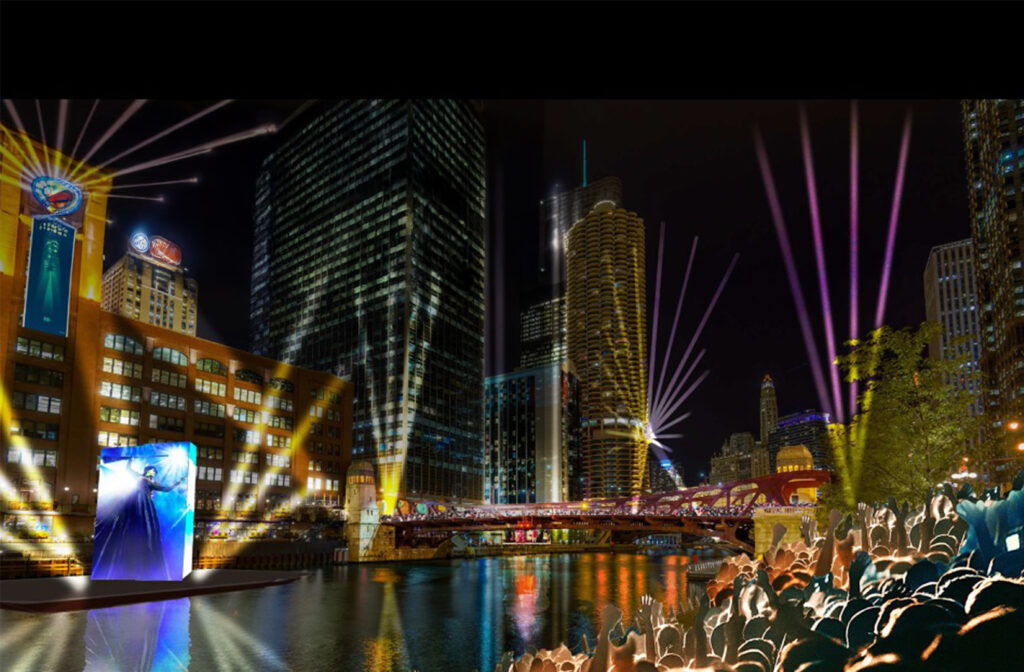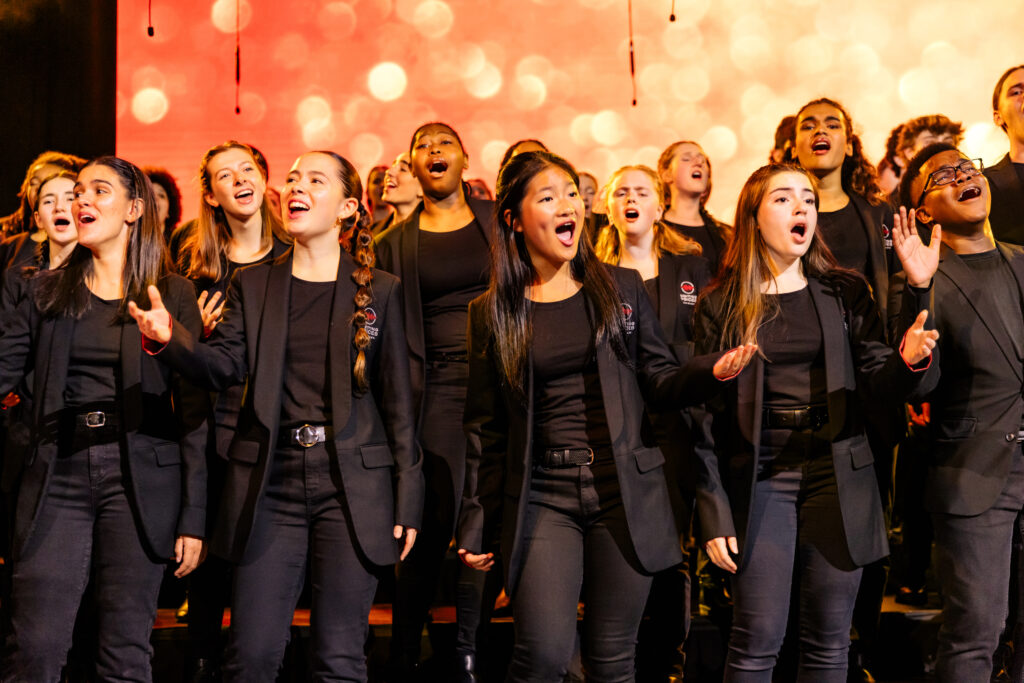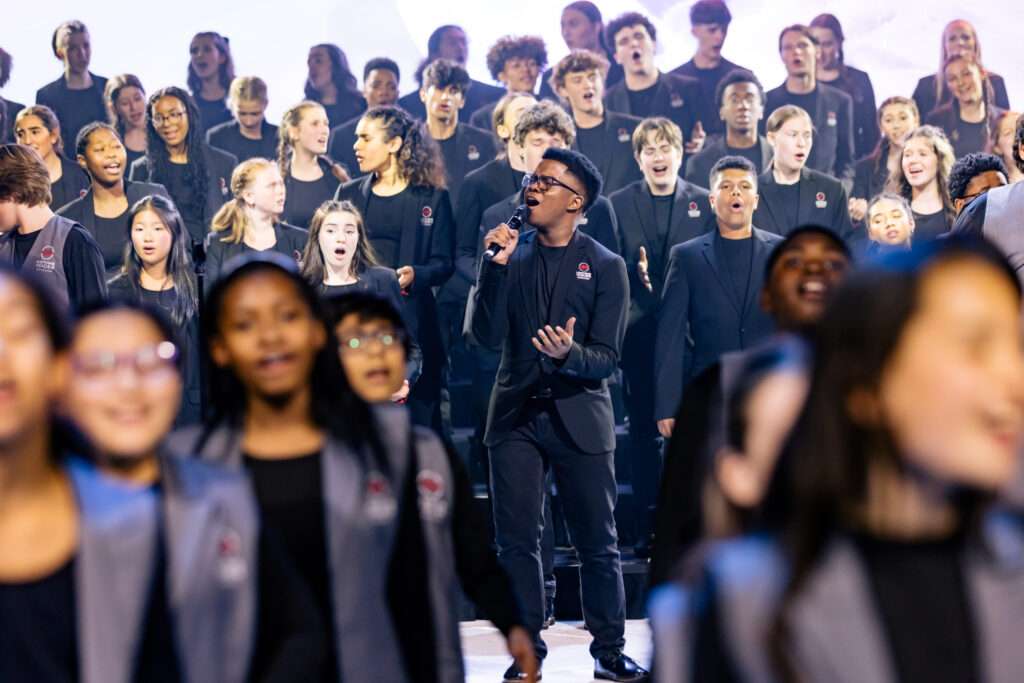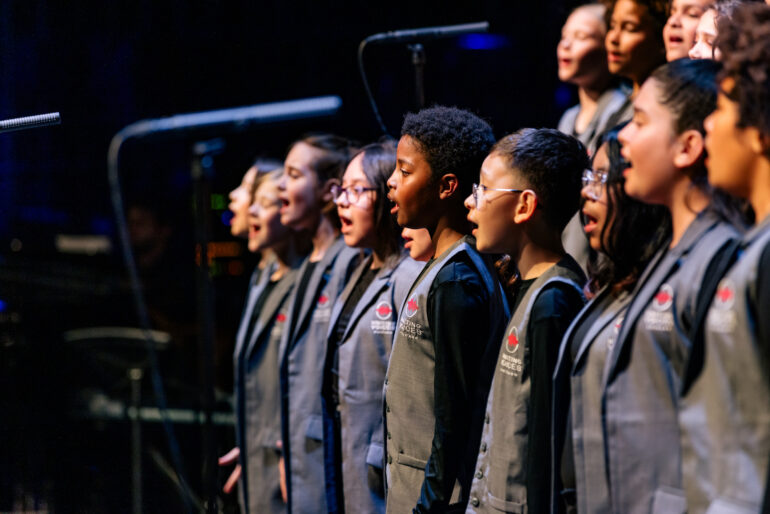As momentum builds around Chicago’s Cultural Stadium concept, much of the focus so far has been on its potential to drive economic growth. Originally introduced by Broadway In Chicago CEO Lou Raizin, the Cultural Stadium is a visionary framework for reimagining the city’s cultural, civic, and recreational assets — from museums and theaters to parks and public art — as a single, connected ecosystem with the potential to generate an estimated $2 billion annually. The 250+ cultural institutions and 150+ parks, outdoor artwork, and stadiums are a collective powerhouse whose expansion across spaces in the Loop, Riverwalk, and Lakefront could create vibrant hubs for tourism and community.
But this initiative has the potential to offer much more than just a financial boost. It’s a blueprint for helping the next generation of Chicagoans thrive.

A Bold Vision for Chicago’s Youth
The Cultural Stadium also holds enormous potential to strengthen social fabric — especially for Chicago’s youth. In an era of declining in-person connection, isolation among young people has reached alarming levels. For decades, Americans estimated spending 6.5 hours a week with friends. Between 2014 and 2019, that number dropped 37 percent, to just four hours per week.
While the pandemic is often blamed, the reality is that this downward trend was already in motion ten years ago. It’s not surprising in this age, where connection is more difficult than ever before, that the CDC reported 40 percent of U.S. high school students reported feelings of hopelessness in the last year.
At the same time, third spaces where youth can gather are also on the decline, contributing to this loneliness epidemic. Add to that curfew restrictions on some of Chicago’s most prominent spaces, like Millennium Park’s ban on youth after 6 pm without an adult. There has been a lifting of curfew restrictions for youth at large cultural events like Lollapalooza. Yet, given the cost of these events, access is not open to many Chicago youth, where 34 percent are from low-income households.
Investing in Future Leaders
If we’re serious about building a better future for Chicago, we must invest in how young people access and engage with the city’s cultural landscape. The Cultural Stadium is one way to do just that — by inviting young people not just to observe but to participate, create, and lead.

Programs like Uniting Voices Chicago already demonstrate the power of this approach. After 25 years working directly with students in the programs, I have seen firsthand how music can connect our students, build their confidence, and empower them to build their futures. Students in our programs have a 100 percent graduation rate, feel connected to each other, and have a sense of belonging in cultural institutions across the city where they perform.
At Uniting Voices, nearly 4,000 young people participate in our programming each year to connect with other Chicago students, grow their own voices, and find their common humanity through the power of music. Our students collaborate with professional artists like Chance the Rapper, Bobby McFerrin, and Theaster Gates. They perform on stage at venues like Lyric Opera House, Harris Theater, Chicago Symphony Center, and Metro, allowing them to experience the rigor of a large-scale production. Uniting Voices high school ensemble Voice of Chicago recently had the privilege of performing with Djo at Lollapalooza, where we saw thousands of youth come together to sing and get inspired.
The Power of Music
At its core, music inspires young people, allowing them to process emotions, build bridges, and begin creating a harmonious world. Through our curriculum and the connections they make with others across all zip codes and backgrounds, Uniting Voices students learn to be compassionate leaders.
But thousands more young people in cities across the nation need a place to find connection — and the Cultural Stadium can offer exciting, creative, in-person opportunities for learning and connections, all in collaboration with renowned cultural institutions.

As we search for solutions to move Chicago forward both economically and in national public opinion, it is time to acknowledge our city’s most critical and promising asset: Chicago’s youth. Chicago needs more spaces where young people can gather, create, and explore.
This is a city of incredible resources where innovative leaders are investing in a brighter future for Chicago. While it is tempting to focus on the incredible economic potential of the Cultural Stadium, I believe this is the exact time to focus on investing in the social and emotional lives of the next generation too.
Chicago’s youth are already making choices that will reshape this city. We can offer a pathway that presents young people with opportunities to grow and find their purpose.
This post was submitted as part of our “You Said It” program.” Your voice, ideas, and engagement are important to help us accomplish our mission. We encourage you to share your ideas and efforts to make the world a better place by submitting a “You Said It,” which can earn a nonprofit that you champion a $1,000 donation from the Make It Better Foundation and eligibility for a Philanthropy Award, grant content partnership, and greater engagement with our audience.
How to Help
Uniting Voices Chicago has helped more than 100,000 youth become the next generation of leaders. Donations allow Uniting Voices Chicago to provide more world-class music training. This training empowers and supports students to carve out a place for themselves on the global stage and provides them with the tools they need to achieve their dreams.

Josephine Lee is the President of Uniting Voices Chicago (formerly Chicago Children’s Choir), a nonprofit organization that empowers and unites youth from diverse backgrounds to find their voice and celebrate their common humanity through the power of music. With hundreds of choirs across 80+ Chicago schools, achievements that include international tours and collaborations with world-renowned artists, and a network of more than 50,000 alumni around the globe, Uniting Voices is taking the next step to empower a new generation of changemakers.

